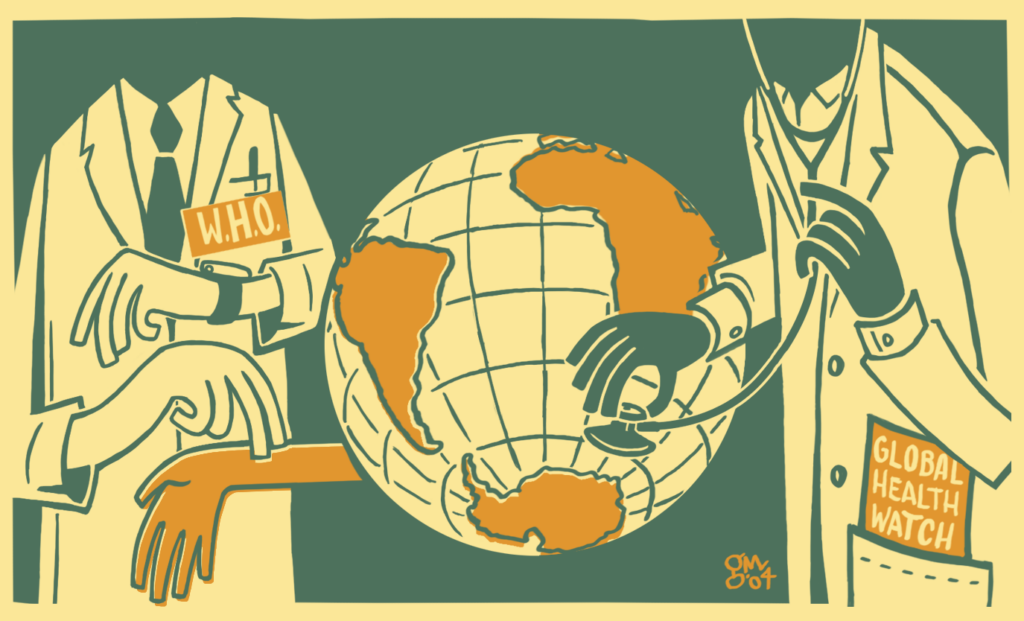Three undergraduate Georgetown students have founded a new club that aims to promote effective altruism, a philosophical movement that champions evidence-based approaches to philanthropy, among members of the Georgetown community.
The club, called Effective Altruism Global Health, brought together nearly a dozen students interested in philosophy, global health and international development at its inaugural meeting on Oct. 3.
Effective Altruism Global Health will focus on effective altruism in the arena of global health. Students in the club will read global health literature, research global health interventions and, ultimately, raise money for a chosen global health cause.
Kearney Capuano (SOH ’24), Eliza Zaroff (CAS ’25) and Alexa Panati (CAS ’25), the club’s founders and co-presidents, explained that the framework of effective altruism will allow the club to analyze how individuals and organizations can use the resources at their disposal to tackle pressing global health issues — such as malaria and water security — in a highly beneficial, cost-efficient manner.
“We know that global health is one of the most pressing issues of today, so we’re trying to figure out what’s the best way to approach it,” Panati told The Hoya.
Club members will choose their global health fundraiser based on effective altruism’s ideology of applying logic, reason and rigorous scientific research to all philanthropic endeavors. The club’s blend of moral philosophy and global health makes Effective Altruism Global Health a new offering at Georgetown, according to Panati.
“It combines more theoretical disciplines with practical ethics and real-world global health problems,” Panati told The Hoya. “It provides a space for people to deliberate on how to do good.”
Capuano hopes that by fostering practical and ethical discussions of global health, the club will help students leverage their academic interests to make a positive difference in other people’s lives.
“We are at this extraordinary institution that educates people at a high level, and I would hope that we can use that education to go help the world,” Capuano told The Hoya. “If we’re learning all of these skills, why not apply them to helping others?”
Capuano said that this semester Effective Altruism Global Health will likely focus their charitable efforts on global issues that lack funding and attention, such as neglected tropical diseases (NTDs) or obstetric fistulas. NTDs are pathogenic illnesses that affect over a billion people in low-income countries, and obstetric fistulas occur when women experience vaginal tearing during childbirth but cannot access surgery to repair the tear.
According to Capuano, such issues remain under-recognized in the global health community, while others receive an outsized degree of attention from global organizations.

“A lot of different charities and organizations are over-funded and over-researched because they’re addressing the cooler topics and research that are easy to get people to care about,” Capuano said.
In addition to fundraising, the club also plans to hold social events, since one of effective altruism’s major tenets is establishing a strong community of people dedicated to helping their fellow humans, according to the movement’s website.
Currently, hundreds of effective altruism groups exist at college campuses, in cities around the world and at the national level. Zaroff said that by bringing the movement to Georgetown, she hopes that students of different personal and academic backgrounds can join together to advocate for a common cause.
“We’re hoping to build a diverse community of people who really care about global health issues so we can think about addressing problems from a wide range of perspectives,” Zaroff told The Hoya.
Capuano said that Effective Altruism Global Health intends to be a supportive, uplifting environment where students can discuss and implement new projects and ideas.
“I don’t want this club to be stressful because so many clubs at Georgetown are stressful,” Capuano said. “I think that if you’re a student who wants to help the world, it shouldn’t be a terrible stress on you.”
Effective Altruism Global Health plans to meet bi-weekly and will hold its next meeting on Oct. 17. Capuano hopes that these regular meetings will inspire students to carry the principles of effective altruism with them into their post-graduate lives.
“If we can shift even a couple of people toward a career where they’re maximizing the good they can do for the world, I feel like we’ll have done our job.” Capuano said.









